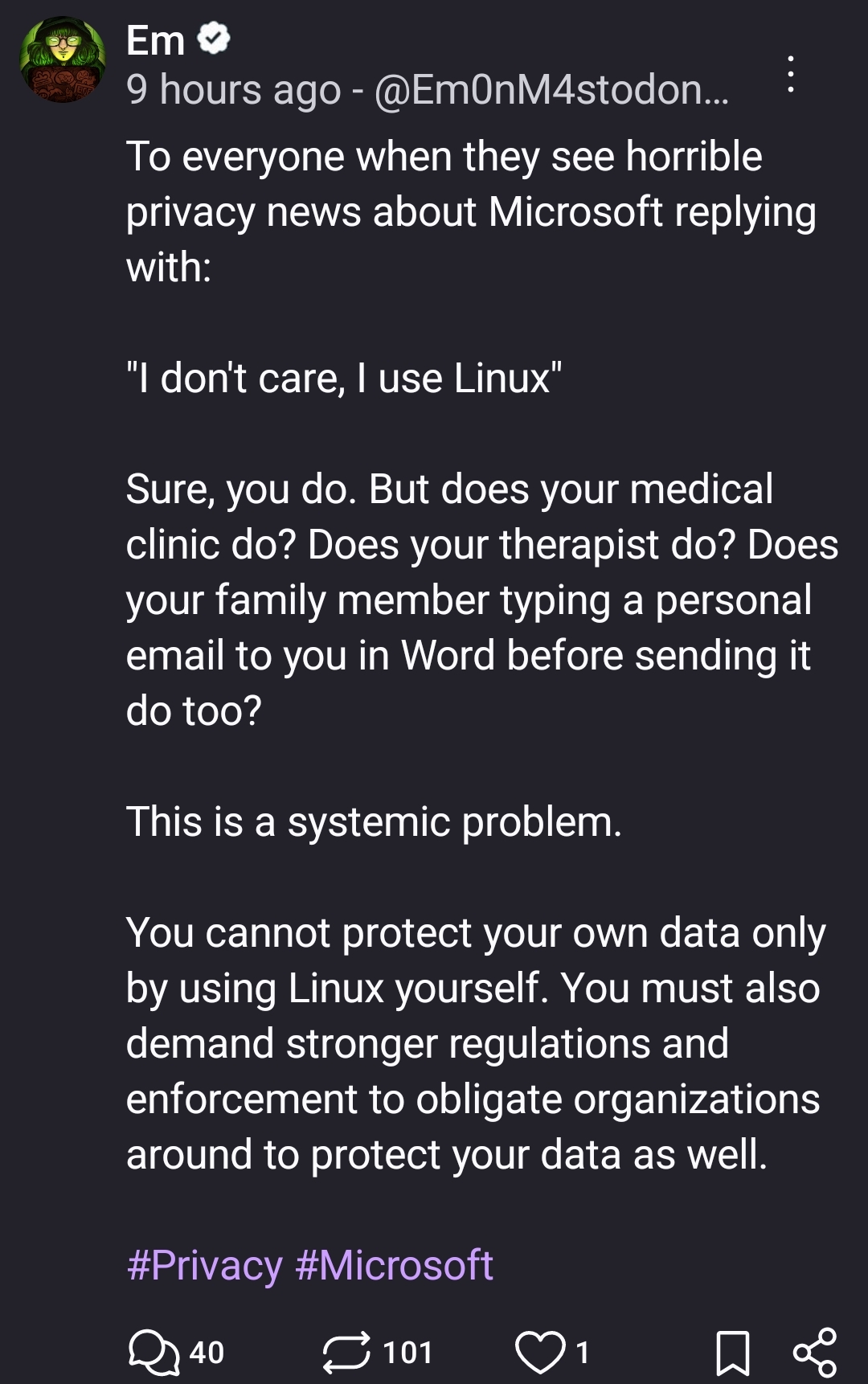this post was submitted on 25 Nov 2024
1826 points (98.7% liked)
Microblog Memes
5910 readers
2618 users here now
A place to share screenshots of Microblog posts, whether from Mastodon, tumblr, ~~Twitter~~ X, KBin, Threads or elsewhere.
Created as an evolution of White People Twitter and other tweet-capture subreddits.
Rules:
- Please put at least one word relevant to the post in the post title.
- Be nice.
- No advertising, brand promotion or guerilla marketing.
- Posters are encouraged to link to the toot or tweet etc in the description of posts.
Related communities:
founded 1 year ago
MODERATORS
you are viewing a single comment's thread
view the rest of the comments
view the rest of the comments

I feel the way you construct your hypotheticals makes my point for how this issue is perceived among... let's say "privacy preppers" and how it differs from the mainstream.
I mean, I sure hope your brave freedom fighter is putting more dilligence on operational security in other areas than they do in data security, because man, they certainly aren't trying very hard if they're being thwarted by accidentally uploading their super secret freedom fighting documents because they were storing them in a OneDrive-enabled "My Documents" folder. In this scenario, do they have their name and address stitched on the outside of their freedom fighitng uniform?
For the record, Microsoft has no way to access my local stored data. They at best can access my synced OneDrive folders... which they don't. It's an annoyance that they insist on attempting to have OneDrive active by default, but they don't do that to mine my medical records, they do that in a fruitless attempt to sell me a OneDrive storage subscription. I am as afraid of Microsoft perusing my hard drive as I am of DropBox, in that both sell services that will store my data somewhere else, both are probably are doing a better job of securing it than I do myself and I use neither.
Now, on what level of privacy and security is reasonable, I will clarify that I don't think physically securing my files is unachievable. On the contrary, it is trivial for me to rip all my hard drives off my devices, put them in a box and bury them in my basement, where my Fallout New Vegas save games will remain fairly secure for the foreseeable future, free from judgemental Microsoft employees.
What I'm saying is that is not a reasonable or practical expectation of privacy because it also renders my data unusable. Like me being listed on a phone book, the state of my data privacy is always going to be some balance of functionality, convenience and security. What balance makes sense depends on what I do. Your fictional tech-illiterate freedom fighter sure would benefit from very secure data, at significant convenience cost. Many a careless normie is happy to let Google know every time they have a bowel movement for the convenience of their services. Most people will be somewhere in the middle.
But it's the government's job to set a floor to that range. To establish the rules for a) what data it's not fine to solicit, b) what the default proesses for soliciting and opting in and out should be, and c) how to properly handle that data once it's been collected. That is a legitimate, structural issue that we all should care about, reagrdless of our personal needs for privacy and security.